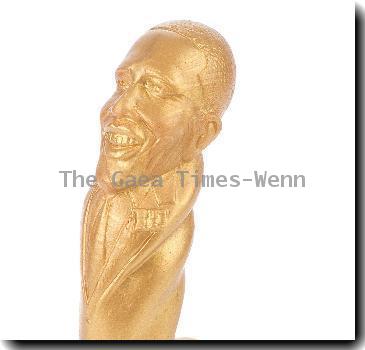UN human rights official says NKorea meting out harsher punishment to those trying to escape
By Kelly Olsen, APFriday, January 15, 2010
UN official says North Korea increasing punishment
SEOUL, South Korea — North Korea is meting out harsher punishment to citizens who try to flee the country, a sign that overall human rights conditions remain dire in the communist state, a United Nations official said Friday.
“The current situation is extremely grave,” said Vitit Muntarbhorn, a Thai professor who investigates human rights in North Korea for the U.N., though he has never been allowed to enter the country.
North Korea has long been regarded as having one of the world’s worst human rights records. The country holds some 154,000 political prisoners in six large camps across the country, according to South Korean government estimates.
Pyongyang denies the existence of prison camps and often reacts strongly to foreign criticism regarding human rights.
In a report last year, Vitit described a litany of human rights abuses in North Korea, including public executions, torture, state surveillance and the use of extensive wiretapping, state control over the food supply, persecution of citizens who try to flee, abuse of women and children and kidnapping of foreign nationals for espionage purposes.
Vitit told reporters Friday that during his term as the U.N.’s key human rights official for North Korea there have been what he described as nominal improvements, such as legal revisions.
“But in terms of substance there have been very serious transgressions and violations throughout the six years that I have tracked this,” he said at the conclusion of a visit to South Korea for meetings with government officials and North Korean defectors.
“Now we get reports of serious punishment, full imprisonment as well as the families being persecuted on the basis of collective punishment,” he said, referring to people who try to leave the country or those who escape but are sent back.
North Korea’s border with South Korea is the world’s most heavily fortified, a legacy of the 1950-53 Korean War. Most North Koreans who flee their country do so by crossing into neighboring China.
Vitit added that there has been information regarding “even worse punishments in terms of possible executions.”
North Korean officials appeared before the U.N.’s Human Rights Council in December. The country blamed limited arable land and natural disasters for its chronic food shortages and acknowledged that public killings take place for “very brutal and violent crimes,” but are exceptions and take place at the demand of a victim’s relatives.
South Korea announced later Friday that the North agreed to accept 10,000 tons of food aid three months after Seoul offered the assistance to help relieve Pyongyang’s chronic food shortages.
Vitit, whose official title is special rapporteur, said his tenure in the post is due to end later this year. He said his attempts to enter North Korea have been consistently rebuffed.
“I always try to seek access,” he said. “We write to them seeking access to the country but we’re always rejected.”
His visit this week overlapped with that of Robert King, President Barack Obama’s special envoy for human rights in North Korea. King described conditions there as “appalling” and called the country one of the “worst places.”






